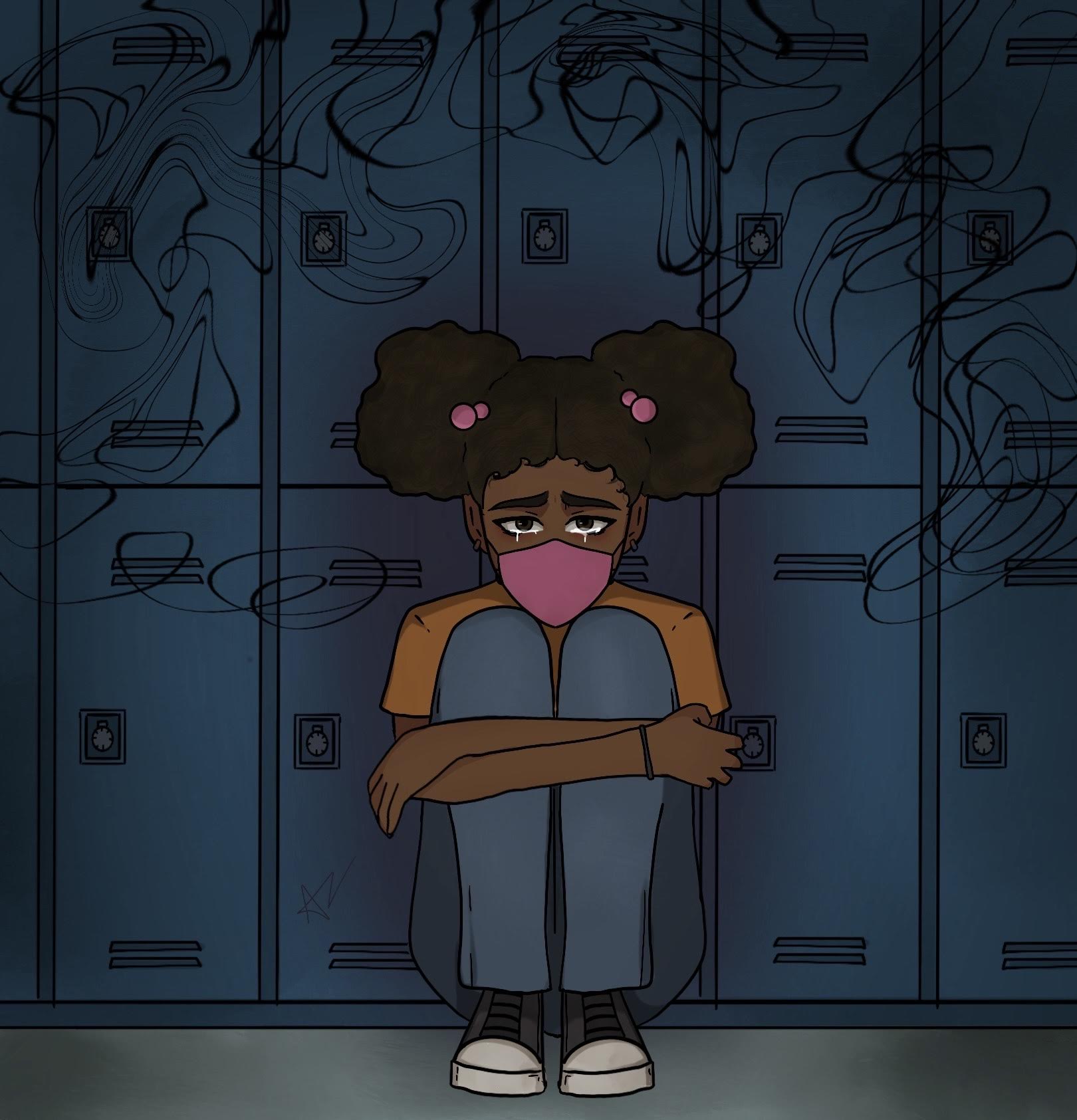
As we ease away from the virtual world we have all had to call home, we can only hope to move forward with the lives we knew before.
For those whose lives are barely starting though, this can throw a wrench in the paths to adulthood that they are trying to traverse.
Childhood and adolescence are the most formative years, with children learning socialization, communication and healthy relationship skills; the pause from all the lessons taught during socialization leaves many disadvantaged, and some can even fall in the cracks.
At a forum for Harvard School of Public Health, child psychiatric epidemiologist Tamsin Ford discussed studies revolving around the pandemics isolation and its effects on children’s mental health. Many of such studies organized their data by age range.
One of these studies began pre-pandemic, then acquired data monthly through 2020. In this study, adolescents aged 16-24 were experiencing symptoms of depression and anxiety “particularly badly” through this time, and the symptoms were only exacerbated for those going through socioeconomic deprivation.
Ford gave other studies such as one that showed that kids’ mental health ages 4-10 had been greatly affected by the isolation of the pandemic, with the symptoms from hyperactivity to depression being worsened by lockdowns.
One study Ford highlighted was following teens’ mental health during the pandemic. In this study, anxiety spiked for teens during lockdowns, but once school came back, fighting and bullying saw a spike itself. She inferred that this is due to friendships and group dynamics that would have had a subtle and natural shift, but due to the pandemic, reached an abrupt turn of dynamic causing clashes.
Fresno has recently had its own fight against bullying as mom Holly Hayes and other parents affected by bullying staged a protest on February 10 at Kastner Intermediate School.
This protest was held after she noticed her son being bullied for months after making the return to in-person learning.
In an interview with ABC30, Hayes said, “There’s dozens and dozens and dozens of parents in the same situation as I am and we just want the school district to be accountable for themselves.”
For reasons such as this, many parents have actually opted to keep their children in online school, to avoid not only illness, but bullies as well.
Janice Schreier, a clinical therapist from Mayo Clinic Health Systems says, “Just in 2021, we saw greater than 30% increase in mental health presentations to emergency rooms.
“And those kids that are coming in are sicker than they used to be before the pandemic. Schreier continued. “They are having higher levels of suicidal ideation, showing more aggression with self-harm, higher rates of substance abuse and more instances of eating disorders.”
Isolation can cause a hindrance on anybody’s growth, but for those building a foundation in life, a hindrance can hurt them as they try to move into adulthood, making the leap be one they aren’t ready for.
Without the necessary skills learned in socialization, many can fall behind, especially at the ages in which socialization teaches you invaluable social and emotional skills.
While we have no control over this pandemic, there is a level of control over how we respond to its effects.
What is important for a child to succeed no matter the diversity they face, is that they must build resilience.
According to a research story from Harvard, what can build resilience in a child is at least “one stable and committed relationship with a supportive adult.”
So while the trauma of the pandemic can negatively affect a child’s growth, they can build resilience with the support of a caring and responsible adult, and this resilience can help them overcome the trauma that we are all still learning to process, at any age.


